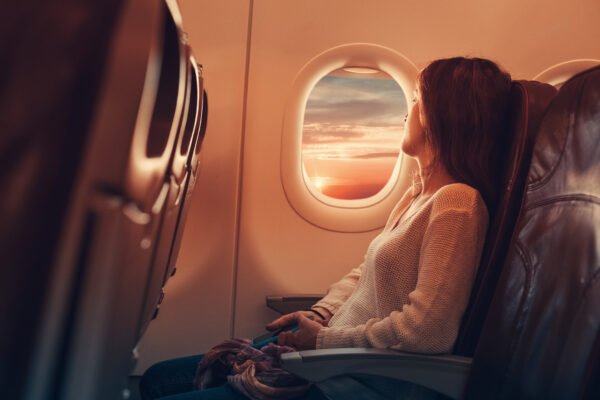When jetting off for a holiday, it’s unlikely your primary concern will be how the flight is going to affect you physically. However, flying can produce a surprising number of reactions in the average human body. In this article, we have worked with Artemis Aerospace to look at some of them and discuss how they can be overcome.

The human race isn’t in its natural element soaring through the air, so perhaps it’s understandable that our bodies might protest a little. However, if you look more closely into the many different reactions flying can produce, it’s worth taking a moment to discover the best way to alleviate them, so you arrive fighting fit at your destination.
Changes to Circadian rhythm
This is probably the issue that is going to affect flyers the most. Circadian rhythm is a natural process which governs the cycle of sleeping and waking every day. It’s primed to ensure the body’s functions are re-energised at optimal points during a 24-hour period and works primarily on the day-to-night cycle. On a flight, particularly a long-haul one, this cycle is interrupted, leading to a reduced amount of sleep, and the sleep which is achieved tends to be more fragmented and of lower quality. It’s commonly known as jet lag. There’s no cure for it, but experts recommend easing yourself into your destination time zone a few days prior to your flight, avoiding caffeine and alcohol while on board, and using a mask and earplugs to help you sleep. Some welcome news is that research suggests around one in three people may not get jet lag at all.
Increased risk of DVT
Deep vein thrombosis (DVT) is often mentioned as a hazard for flyers, but it’s not the flight itself that is the problem; it’s the fact that you’re likely to be sedentary for lengthy periods of time – you can just as easily end up with it from a long car journey. To reduce your risk of DVT, the most important thing to do is get up and move around the cabin at regular intervals, and move your legs about while sitting down, although not to the extent that you annoy your neighbour! Wearing compression socks, which help increase the blood flow to the heart, is recommended on long flights.
Dehydration
According to a study published by the Journal of Environmental and Public Health, the average person loses up to 8% of their body weight in water during a flight; lower air pressure in the cabin and very low levels of humidity all contribute towards this. During a flight, the air in the cabin is considerably dryer than the Sahara Desert.
It’s obvious what the answer to this one is. Ensure you drink plenty of water on board. Not caffeine or alcohol, both of which will accelerate the drying process, and it’s best to steer clear of fizzy drinks too as these can exacerbate bloating in the digestive system. You should aim to drink a large glass of water for every hour of the flight. This may mean more frequent trips to the loo, which can be annoying if you’re in a window seat and have to squeeze past your neighbours and circumvent the duty-free trolley, but it also has the benefit of movement and reducing the DVT risk.
Other helpful tips include swapping contact lenses for glasses and using eye drops, applying skin moisturiser and nasal spray, avoiding salty snacks and placing a damp flannel over your face when trying to sleep to moisturise the air you breathe in.
Air sickness
Nobody wants to be, or end up sitting next to, the person who spends the entire journey clutching a sick bag. Airsickness occurs when the central nervous system is discombobulated and receives conflicting messages from body parts such as eyes, muscles and inner ears. This affects the vestibular system which provides balance and equilibrium, and leads to spatial disorientation and nausea. It’s more common in women, children, and people who are already susceptible to other forms of motion sickness, but the majority of people don’t have a problem with it.
Luckily, there are numerous tablets which offer protection against air sickness. They work by blocking signals from the vestibular system and therefore toning down the conflicting messages. Some people swear by acupressure bands or other natural remedies. Other advice includes sitting in a window seat and fixing your eyes on the horizon, aiming the air vent at your face, and eating small quantities of light snacks such as ginger biscuits which have anti-sickness properties.
The good news!
All of the above may look a bit alarming, but if passengers take a few sensible precautions, there shouldn’t be an issue, and the joy and excitement of foreign travel will easily outweigh any risks.
